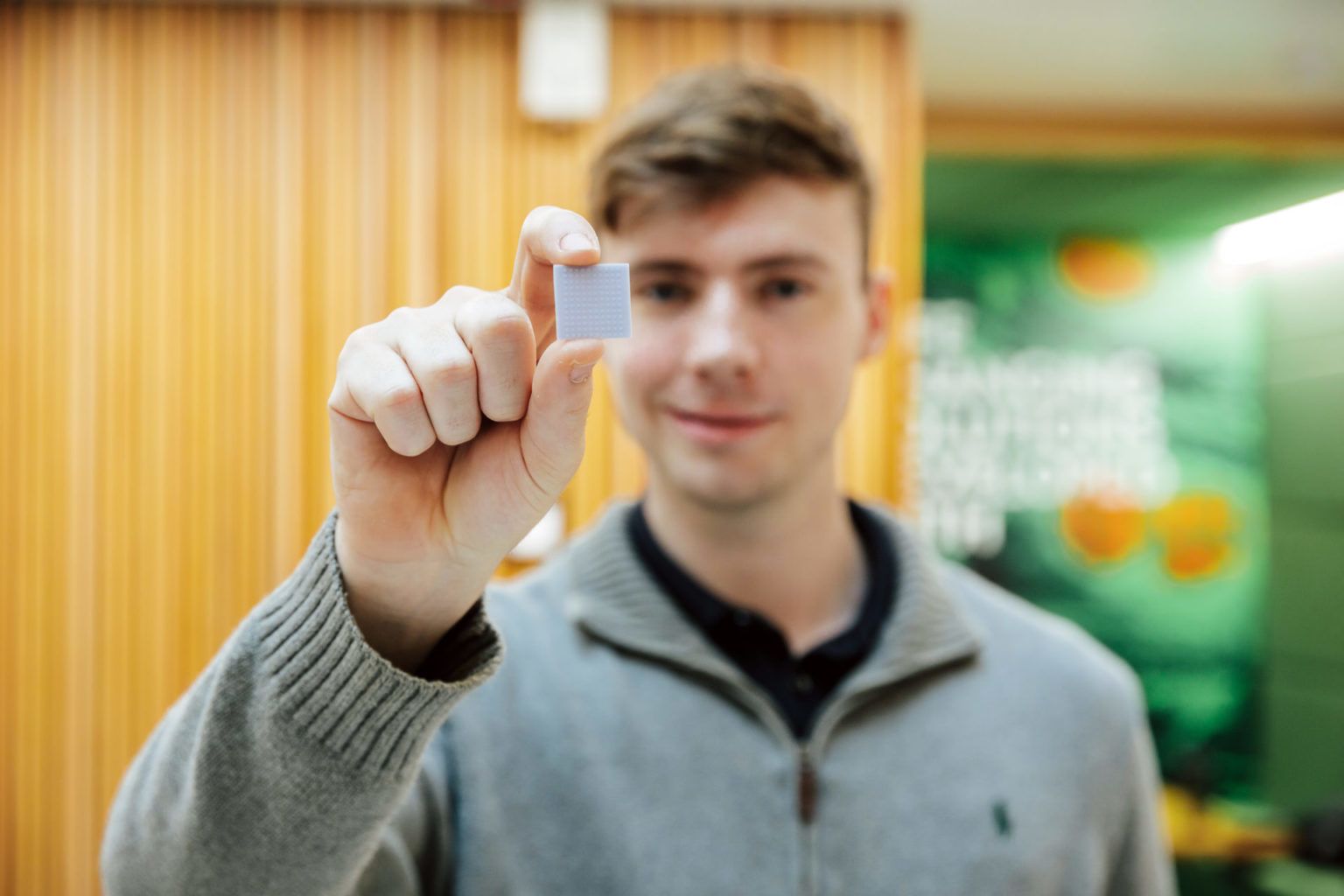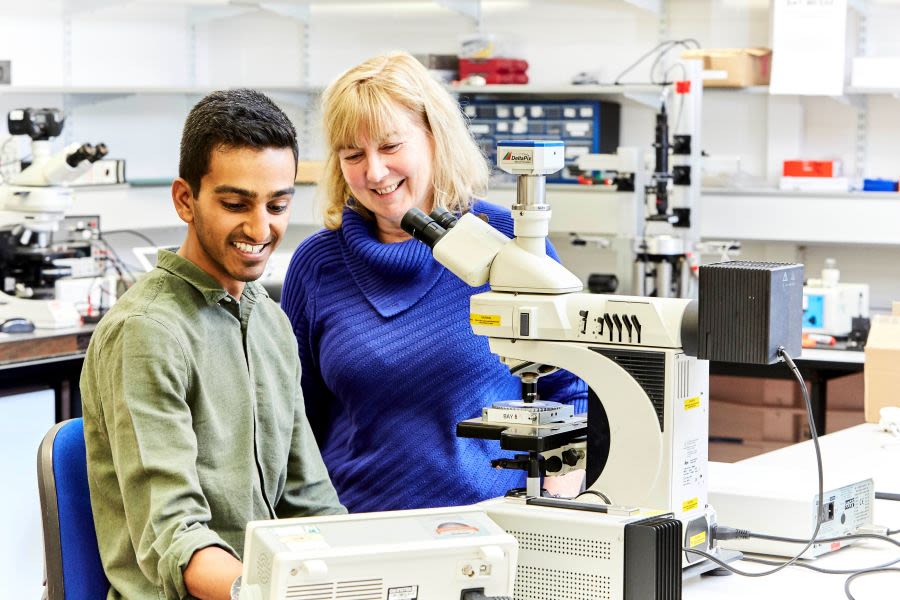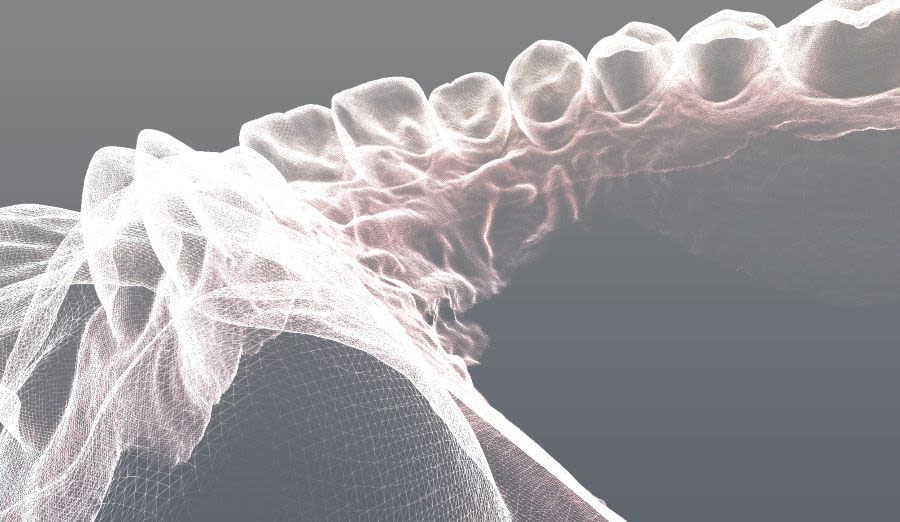Celebrating five years of Nexus
Collaboration, innovation and growth

Nexus, the innovation hub at the University of Leeds, is celebrating five years of growing successful businesses and entrepreneurs.
From vaccine patches to digital dentistry and pet care, Nexus members are turning bright ideas into world-changing innovations.
Inside Nexus is a community ranging from entrepreneurial students to business start-ups, advisory partners and funding networks.
Professor Nick Plant, Deputy Vice-Chancellor: Research and Innovation at the University of Leeds said: “Since first opening in 2019, Nexus has been our state-of-the-art innovation hub where businesses, entrepreneurs, students and researchers can come together to grow and create new innovative opportunities.
“I am looking forward to seeing how Nexus will continue to bring together the brightest minds and help establish new ideas, partnerships and technologies that deliver impact across our region and beyond.”
Officially opened on campus in May 2019, Nexus develops collaborative partnerships with its wide ranging community.
Dr Martin Stow, Pro Vice-Chancellor for Business Engagement and Enterprise at the University of Leeds said: “We have built a real dynamic and innovative community – one in which brilliant minds with ideas that push boundaries are given a platform to succeed.
“We also have a civic responsibility that we take very seriously. Through communities like Nexus, we make sure that the knowledge and talent that emerges from our University has a direct and positive impact far and wide. Nexus is very much a global community, and our members are helping attract investment and impact into our region.”
He highlighted projects including MIT REAP and the collaborative role that Nexus is playing in the Leeds Innovation Arc.
West Yorkshire continues to attract new investment, following Channel 4’s move to Leeds and the launch of the multi-billion National Wealth Fund.
The West Yorkshire Devolution Deal – which was signed at Nexus – brings more authority, autonomy and money to the region. In addition, West Yorkshire has been chosen as the country’s third Investment Zone – a transformational project that will boost economic growth.
Gareth Scargill, Nexus Director said: “Nexus was founded on the belief that businesses, academics, researchers and innovations are always capable of more when we work together. It’s this belief that has driven our work for the past five years and will continue to do so going forward.”
Find out more about how Nexus is celebrating its fifth anniversary, and join the conversation.
Discover more about the people and businesses who are making waves in their industry sectors and the regional community.
Bright sparks create innovative patches
Microneedle Solutions with Henry Dunne and Ian Bartenev

The co-founders of Microneedle Solutions first discussed their business idea over brunch in Leeds.
The BSc Biotechnology with Enterprise students drew up a plan to increase vaccine uptake by developing self-adhesive patches containing microscopic needles.
Patients can apply the patches themselves, reducing the strain on healthcare providers and delivering cost savings as they are cheaper to manufacture and store than traditional needles.
The duo successfully applied for a Spark scholarship and ran their start-up company as part of the Spark incubator at Leeds.
Now, with the support of Nexus, Henry Dunne and Ian Bartenev are planning a clinical trial for their innovative patches.
Henry said: “Ian and I reached out to Spark in our second year and they were really helpful. We learnt how to write a business plan and gained initial funding to do some prototyping.
“Another smaller grant from Spark enabled us to generate data for the pre-seed round of funding and created access to offices and labs at Nexus. We then fostered connections with bio research groups in the university.
“The next big step which will be the first-in-human clinical trial will test the safety and efficacy of our vaccine patches.”
World-first material scales up
Auxetec, a Deep Tech Advanced Materials Business

Auxetec, a Deep Tech Advanced Materials Business and Nexus member, has commercialised materials that thicken when stretched – a world-first discovery.
Auxeticity – when a material becomes thicker rather than thinner when stretched – can be seen in places like a human achilles tendon and cat skin. It can give materials an advantage when absorbing shock, as well as resisting delamination, tears and fractures.
An initial investment from Northern Gritstone helped to transform the company, and this year the project was shortlisted for a Times Higher Education Research Project of the Year: STEM award.
Professor Helen Gleeson, Cavendish Professor of Physics at the University of Leeds’ School of Physics and Astronomy and founder of Auxetec said: “Since Northern Gritstone’s investment, we’ve discovered new design rules for the materials, developed new IP and the Auxetec team have made significant advances in scale-up, with successful testing for commercial approaches to fabrication in target end user applications within a buoyant customer pipeline.
“Excitingly, we’ve shown that the effect works from the nanoscale (a few atoms in dimension) to real life dimensions (centimetres to metres).”
Video transcript — Northern Gritstone speak to Auxetec
Auxetec is supporting the green energy sector, through protecting the leading edges of wind turbines. This has led to greater production efficiency and reduced maintenance cost coupled with carbon offset.
Robert Gunn, Chief Executive at Auxetec, said: “We have had exceptional support from the University of Leeds innovation eco-system, including the state-of-the-art lab facilities in the Bragg Building on campus.”
“We also benefit from relationships fostered by Nexus, allowing us to engage with highly capable, agile and creative entrepreneurs facing similar challenges.”
Entrepreneurs achieve a social goal
We are Social Enterprise Recruitment with Lyndon Timings-Thompson and James McBride
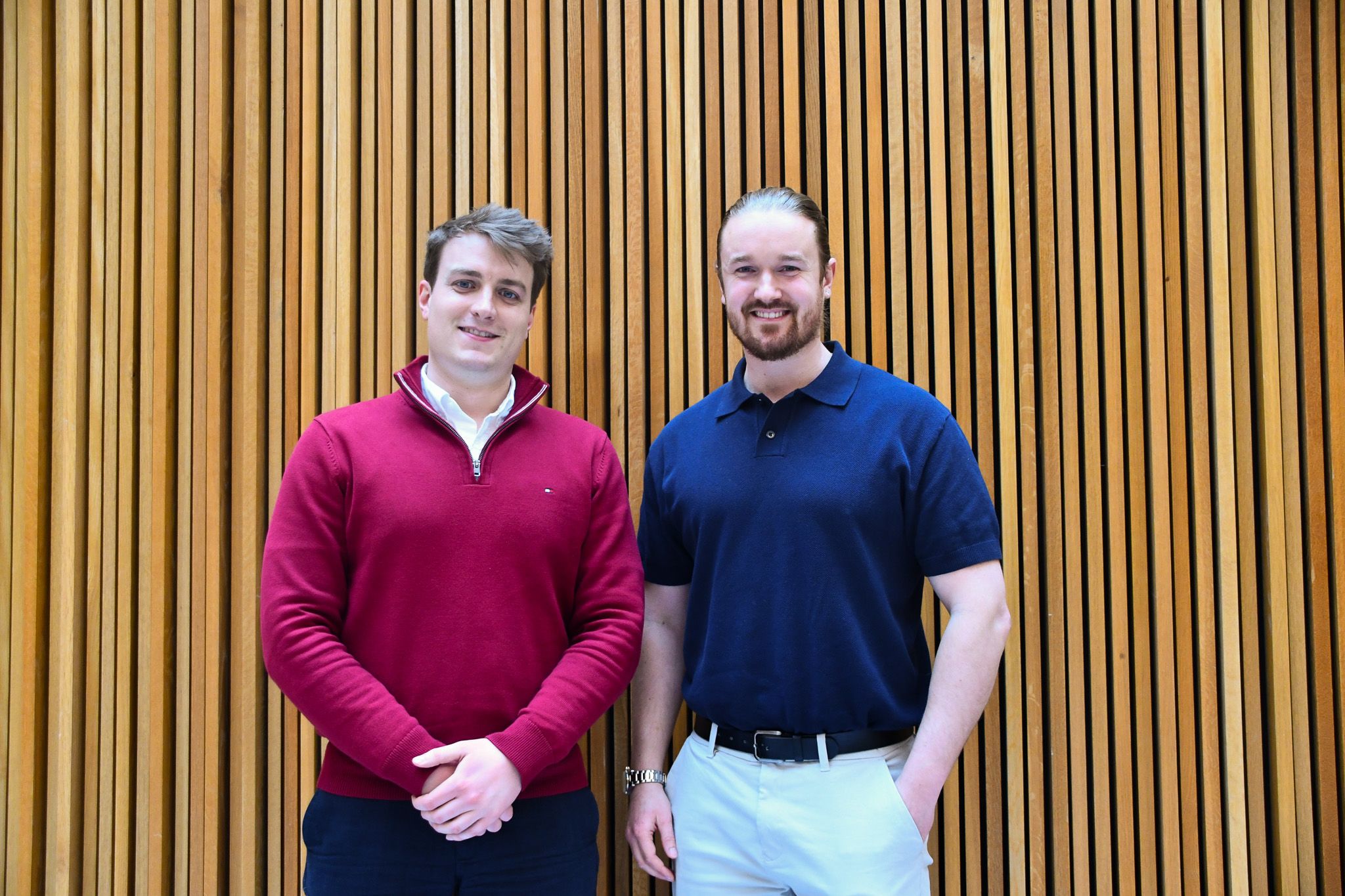
Dental HealthTech innovation goes from strength to strength
AI dentistry with Mimetrik Solutions
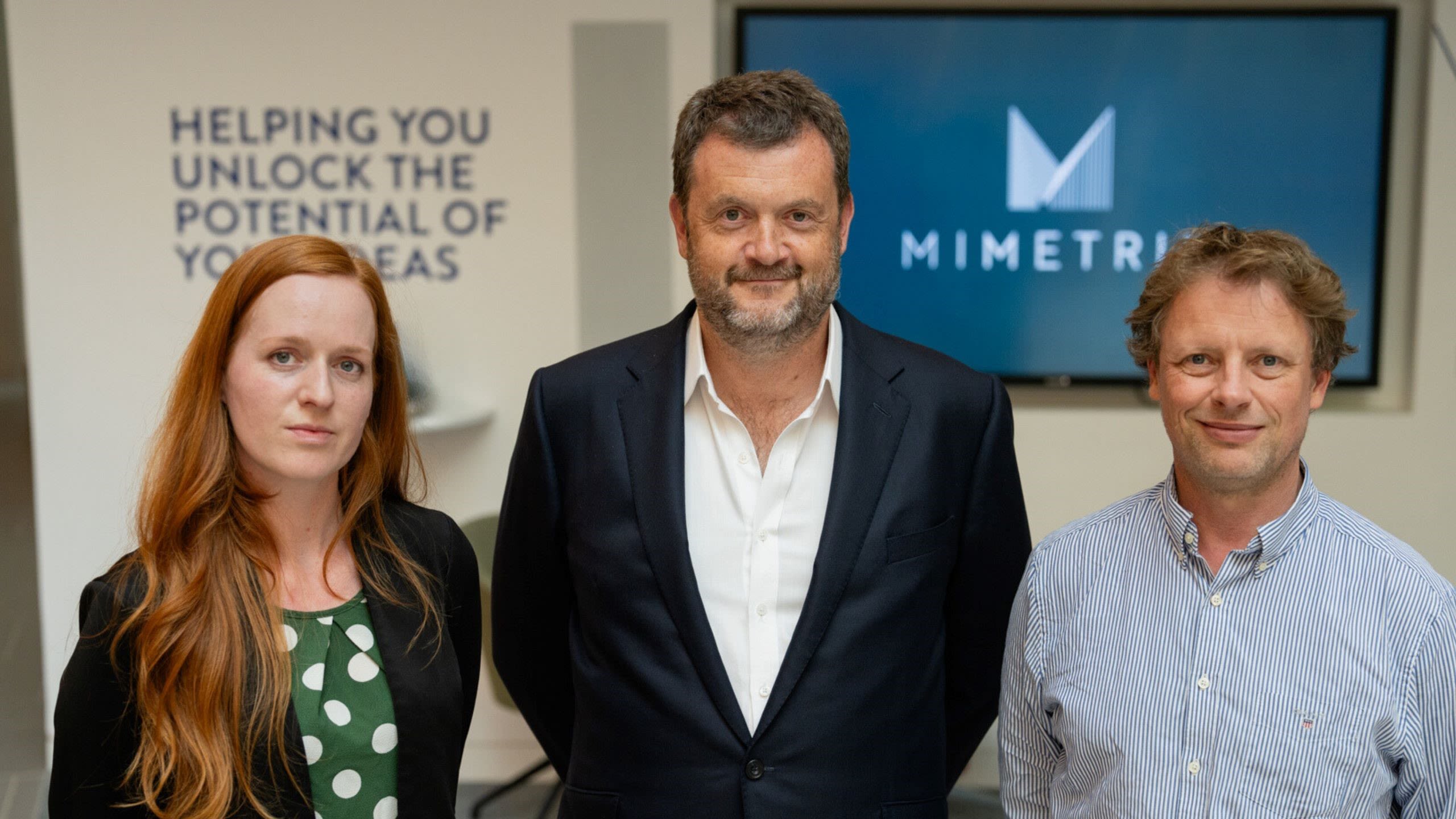
Mimetrik Solutions, a spinout company from the School of Dentistry at the University of Leeds, has developed digital technology that uses traditional machine and deep learning techniques to generate fully digitised images of patients’ dentition and facial structure.
With support from Nexus, the business is now expanding to accelerate the development of its AI dentistry products and this year the company has successfully completed first clinical trials of its optical facebow software.
Mimetrik was founded in 2020 and builds on more than a decade of world-leading research at the School of Dentistry.
Following a £2 million funding round from Northern Gritstone and existing angel backers in 2023, Mimetrik went on to secure a £458,000 Innovate UK grant to further the development of its Clinical Toothwear Diagnostic software.
Mimetrik’s aim is to create a full ‘digital pathway’ between dental labs and clinicians, replacing the costly, time-intensive approach of creating physical models of a patients’ teeth enabling more accurate and efficient treatment.
Alyn Morgan, Co-founder and Executive Chair of Mimetrik, said “With continued investment and grant funding the company has grown to a headcount of 12 people, leading to a move to larger offices in Nexus.
“Being on campus is key as we plan further clinical trial collaboration with the School of Dentistry, and as we continue to develop relationships with commercial partners, access to the Nexus community and facilities is an essential part of our growth strategy.”
Shaping the future of pet care
Animal health with Vet-AI

Since becoming the first tenant at Nexus, Vet-AI has achieved extraordinary growth.
The business was founded in 2017 by a team of vets and tech experts. Their mission is to shape the future of pet healthcare by using technology that puts pets and their owners first.
Vet-AI created the Joii app, which gives customers 24/7 access to vets from their smartphone, including video consultations. More than 400,000 pets are registered.
Through the Nexus community, Vet-AI has accessed academics and identified strategic partners to bring into the boardroom.
The company has successfully undertaken two Knowledge Transfer Partnerships with the University of Leeds, a programme which allows a qualified graduate or postgraduate to work within the business. The company has also hired PhD interns, some of whom have become full-time employees.
Paul Hallett, founder of Vet-AI, said:
“Nexus has been an essential part of the development and growth of Vet-AI, helping us build validated and robust technology for the animal health industry. The hope for the next phase is to internationalise the business and positively impact more pets and people.”
To stay up to date with Nexus events and find out how to become a member, visit the Nexus website.
